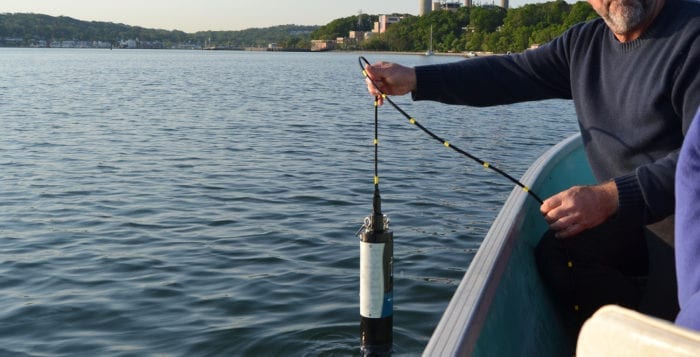Editorial: Preserving the Long Island Sound for generations to come

The Long Island Sound, our shimmering jewel, is not just a watery highway or a scenic backdrop — it’s the very lifeblood of our region, pulsing with economic vitality, ecological diversity and recreational wonder. But this precious resource is increasingly under threat, its vibrancy dimming in the face of pollution, overdevelopment and climate change.
The Sound is an economic powerhouse, supporting jobs in fishing, tourism and maritime industries. Its oyster beds once rivaled those of Chesapeake Bay, and our waters teemed with cod, lobster and striped bass, fueling a profitable fishery. For generations, Long Islanders have cast their nets and lines, and livelihoods into the waters.
But pollution casts a long shadow. Runoff from urban centers and fertilizers alike can choke the Sound with nitrogen, feeding harmful algal blooms depleting oxygen and leaving behind dead zones where no life can thrive. Plastic waste can drown marine life, and microplastics enter the food chain, silently posing a threat to human health.
The changing climate adds another layer of urgency. Rising sea levels inundate coastal communities, eroding beaches and threatening infrastructure. Hurricanes become more frequent and ferocious, battering our shores. As the waters warm, delicate ecosystems shift, impacting fish populations and the intricate web of life beneath the surface.
To stand idly by as the Sound fades would be a betrayal of our heritage and a reckless gamble with our future. We must act now, with resolute hearts and committed minds, to become stewards of this irreplaceable ecosystem.
The solutions are multifaceted.
We must support policies that curb pollution, reduce runoff and invest in clean water infrastructure. Solutions like the Long Island Sound Restoration and Stewardship Act set for reauthorization from the U.S. Rep. and advocate Nick LaLota (R-NY1). Solutions that allow for stricter regulations on coastal development and responsible management of our shorelines.
We must continue to uplift the work of the Setauket Harbor Task Force in Setauket and Port Jeff harbors. We must recognize the diligence and continued efforts from Stony Brook University researchers at SoMAS to the ongoing betterment of our beloved Sound.
Individual actions matter too: reducing our use of pesticides, adopting responsible waste disposal practices and supporting sustainable seafood choices — each ripple contributes to a healthier Sound.
The Long Island Sound is not just an expanse of water, it’s the soul of our region. Let us rise to the challenge, not just for ourselves, but for generations to come.






